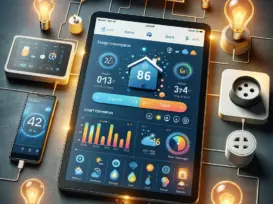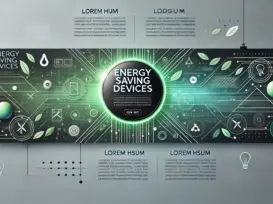Grus Home Energy - energy saving tips
Top Energy Saving Tips to Reduce Your Utility Bills
With the rising costs of electricity and the increasing concern for the environment, it’s more important than ever to find ways to save energy in your home. By making simple changes to your daily routine and investing in energy-efficient appliances, you can significantly reduce your utility bills and lower your carbon footprint. Here are some top energy-saving tips to help you get started:
1. Change Your Habits: One of the easiest ways to save energy is to adjust your daily habits. Turn off lights and electronics when not in use, use natural light during the day, and unplug appliances when they’re not being used. By being more mindful of your energy consumption, you can make a big difference in your overall usage.
2. Upgrade to Energy-Efficient Appliances: If your appliances are outdated, consider upgrading to energy-efficient models. Look for appliances with the ENERGY STAR label, which indicates that they meet strict energy efficiency guidelines set by the U.S. Environmental Protection Agency. While these appliances may have a higher upfront cost, they will save you money in the long run through lower energy bills.
3. Use Programmable Thermostats: Heating and cooling account for a significant portion of your energy bill. By installing a programmable thermostat, you can set your home to automatically adjust the temperature when you’re away or asleep. This will help you save energy without sacrificing comfort.
4. Seal Air Leaks: Check for drafts around windows, doors, and other openings in your home. Sealing these air leaks with weatherstripping or caulk can help prevent heat loss in the winter and keep cool air in during the summer. This simple step can greatly improve your home’s energy efficiency.
5. Insulate Your Home: Proper insulation is key to maintaining a comfortable temperature in your home and reducing energy costs. Make sure your attic, walls, and floors are adequately insulated to prevent heat loss in the winter and heat gain in the summer. Adding insulation is a one-time investment that can lead to long-term savings on your energy bills.
6. Opt for LED Lighting: LED bulbs are more energy-efficient than traditional incandescent bulbs and can last up to 25 times longer. While they may have a higher upfront cost, LED bulbs use less energy and will save you money over time. Consider replacing your old light bulbs with LED options to reduce your energy consumption.
7. Wash Clothes in Cold Water: Heating water accounts for a significant portion of your energy bill, especially when it comes to laundry. By washing your clothes in cold water, you can save energy and reduce your utility costs. Many modern detergents are designed to work effectively in cold water, so you won’t sacrifice cleanliness by making this simple switch.
8. Unplug Energy Vampires: Many electronics and appliances continue to draw power even when they are turned off. These “energy vampires” can account for a significant portion of your energy usage. To combat this, unplug devices like phone chargers, computers, and TVs when they’re not in use, or use power strips to easily cut power to multiple devices at once.
By implementing these energy-saving tips in your home, you can lower your utility bills, reduce your carbon footprint, and create a more sustainable living environment. Small changes can add up to big savings over time, so start making energy efficiency a priority in your daily routine.
Blog, Energy Savings & Cost Reduction , May 17, 2024 , efficiency housing, Electricity bill, energy audit, energy conservation techniques, Energy Consumption, energy efficient home designs, energy efficient homes, energy saving tips, home automations, home energy audit, Smart Home Automation, Smart Home Energy Management, Smart Home Security Systems
©2025 All Rights Reserved. Grus IoT Co.,Ltd.

